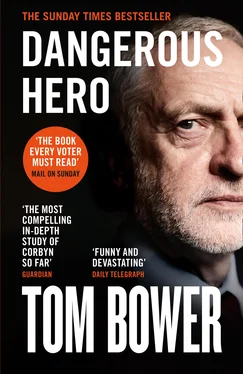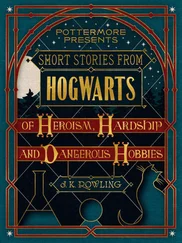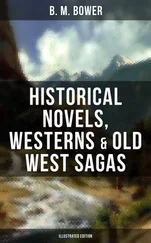Corbyn’s passion for Abbott ended any hope Jane Chapman might have had that their relationship could be restored. He had found a political soulmate who shared his anger at Callaghan’s treachery, regarded Britain as the country that ‘invented racism’, and echoed his praise for the IRA. ‘Every defeat for the British state,’ Abbott would say, ‘is a victory for all of us.’ Feisty and, in her early years, good-looking, Abbott persuaded Corbyn to change his habits to suit her, at least for a while: he enjoyed social evenings with her and friends at restaurants and dinner parties. ‘We had a working supper in our living room one time,’ recalls Barbara Simon. ‘Jeremy brought Diane, who didn’t come across as noisy and brash. She must have found the scene of two warring factions in Hornsey intimidating.’ Simon had equal sympathy for Corbyn: ‘Women were chasing him and he got trapped.’
Despite his and Abbott’s sexual and political closeness, Corbyn spent Christmas Day 1979 alone. ‘What will you do?’ Toby Harris had asked him. ‘I’m going to the Suffolk seaside and letting my dog run along the beach,’ Corbyn replied. Others described his despair because there were no political meetings on Christmas Day, as he could not face his family.
He returned to London to pursue his vocation – politics. As leader of Haringey council’s left-wing caucus, he could not be ignored. The safe option was to elect him chairman of the planning committee, a role without any budget. Unlike his predecessors, he did not attract even a suspicion of favouritism – he appeared wholly incorruptible. He refused all invitations for drinks with possible lobbyists, and would not even meet developers. His hatred of the middle class was as fervent as ever: he encouraged plans to build council blocks among private houses, and when people protested he dismissed them, scoffing: ‘The arrogance of all those doctors and lawyers, talking about the environment when what they’re scared of is black kids.’ To further spite Muswell Hill’s middle class, he allowed gypsy families to set up an encampment on local playing fields.
Corbyn’s high profile locally was not mirrored across the capital. Only Ken Livingstone, a better speaker and a consummate networker, had the ability to take control of London’s left. After his defeat in Hampstead in the 1979 general election, Livingstone recruited Corbyn, Keith Veness and Ted Knight for ‘Target 82’, a secret timetable he submitted to the Trotskyist Socialist Campaign for Labour Victory (SCLV) to take control of the GLC after its elections in May 1981. After long discussions, their fellow members in the SCLV dismissed the plan. The Trotskyites, Livingstone grumbled, were ‘gross, grovelling toadies’ – a slightly odd insult, as one of his hobbies was keeping newts.
‘I’m pissed off with factional Trots,’ agreed Keith Veness. Like the other three, he wanted to concentrate on gaining political power rather than engage in internecine warfare, the usual fate of most far-left groups. Breaking with the SCLV, some time in 1980 Veness invited Livingstone, Knight, Corbyn and Bernie Grant to his Highbury home, and together the group created a new cadre, London Labour Briefing. ‘We’re an open conspiracy to get rid of the right wing,’ Corbyn declared. ‘It’s a two-stage insurgency,’ added Veness. ‘First grab control of the GLC, and then Thatcher’s government.’ The first step towards Target 82, they agreed, was to take over the London Labour Party and secure the nomination of fellow Trotskyists as Labour candidates in the GLC election. Acting to a strategy outlined by Trotsky, the minority would eventually make itself a majority. Trotsky himself, wrote the historian Robert Conquest, was ‘a ruthless imposer of the party’s will who firmly crushed the democratic opposition within the party and fully supported the rules which gave the ruling group total authority’. Abiding by those tactics, the Target 82 group agreed to remove their enemies as quickly as possible, consolidate their control, and never give it away.
The launch of London Labour Briefing was staged at the GLC’s headquarters in County Hall. It attracted two hundred people, and was regarded by Livingstone, its prime organiser, as a ‘great success’. Like all such groups, Briefing’s credibility depended on publishing a newspaper. ‘Even if it’s not read,’ said Veness, laughing, ‘we’ve got to have one.’ The editorial board of the weekly news-sheet included Corbyn as the group’s general secretary, the reliable dogsbody prepared to undertake the unglamorous chores. Their aim was to deselect moderate Labour councillors and take over constituency parties, which would vote for Tony Benn as Labour leader when Jim Callaghan, as was expected, resigned. In the alphabet soup of initials of the rival left-wing groups, London Labour Briefing was affiliated to the London Representation Committee (LRC), a group chaired by John McDonnell, a member of Liverpool’s Trotskyite Militant Tendency. The LRC urged ‘mass extra-parliamentary action’ to disrupt the economy, and published hit lists of Labour MPs it described as ‘traitors’. McDonnell openly enthused about riots as the precursor to an uprising. That difference did not prevent him and Corbyn bonding during the endless meetings favoured by the left.
In their joint cause, Corbyn eagerly began to organise his supporters in Hornsey to force out his enemies. He particularly targeted Douglas Eden, not least for his having mocked him as ‘public-school-educated’. ‘It was a grammar school,’ Corbyn told the Hornsey Journal , adding that it was ‘now happily a comprehensive’. This was another small untruth. The school remained fee-paying for selected children. If it burnished his left-wing credentials, Corbyn was still willing to lie about trivialities.
Chairing the inquiry into Eden’s loyalty, Corbyn allowed the social democrat to speak in his own defence for forty-five minutes – then promptly announced his expulsion. Eden protested to Reg Underhill, Labour’s national agent at party headquarters, that he had been ‘hounded out by Corbyn’. Underhill, who was leading the hunt against Trotskyist infiltration, notified Haringey’s branch secretary that she had failed to follow the proper procedures, and the inquiry should be reheld. Unabashed, Corbyn started the expulsion process again, with the same result.
Eden’s fate was replicated across London. As moderate members were forced out of the party, Corbyn, Knight, Livingstone and McDonnell were elected to the national executive of the London Labour Party, and immediately began the deselection process of moderate councillors who had been put forward as candidates for the May 1981 GLC elections. Under the banner of the Campaign for Labour Party Democracy, every candidacy was to be openly contested, ostensibly to allow greater democracy but in fact to allow the left to take over. This would, to use Tony Benn’s catchwords, transform Labour into a ‘pluralist grassroots party of the masses’, one that would exclude dissenters, especially social democrats. In Brent East, where Livingstone hoped to snatch the parliamentary nomination from a moderate MP, he, like Corbyn, had forged close relations with immigrant groups by pledging to remove the restrictions on migrants settling in Britain. In return, over a hundred Asians – many of them unable to speak English – were enrolled as party members in the constituency and obediently voted against Livingstone’s rivals. A similar pattern emerged in Islington. ‘If voting changed anything,’ sniped one moderate, ‘they’d abolish it.’
Livingstone asked Corbyn if he planned to stand in Haringey for the GLC, and was surprised when Corbyn said he did not. As a full-time NUPE official, he explained, he would find it difficult to attend the GLC’s daytime meetings. The truth was different. Corbyn was sceptical about joining an authority with limited powers, and was still harbouring his secret ambition to become an MP. His allies were unaware that because of his extremism he had already been rejected as the prospective parliamentary candidate in Enfield North. Next, he had unsuccessfully applied in Croydon, but a chance encounter in the Croydon party’s headquarters with his old friend Val Veness, who was also applying for the seat, changed his life. ‘I didn’t realise you wanted to be an MP,’ she said. ‘I might be able to help you. But it’s got to be kept secret.’ Keeping secrets had never been a problem for Corbyn.
Читать дальше










